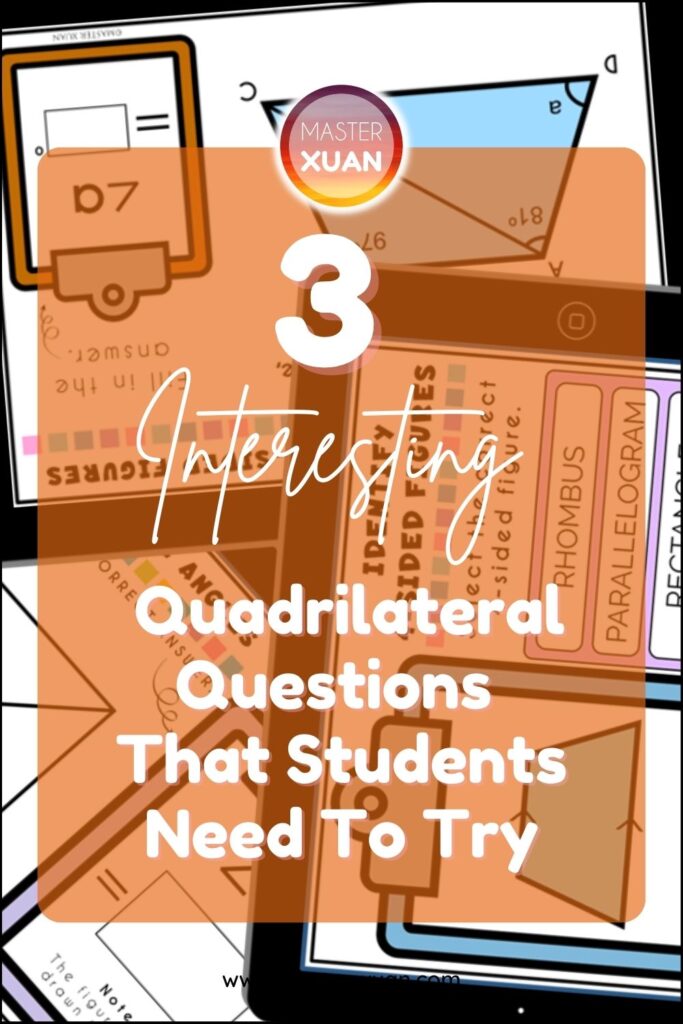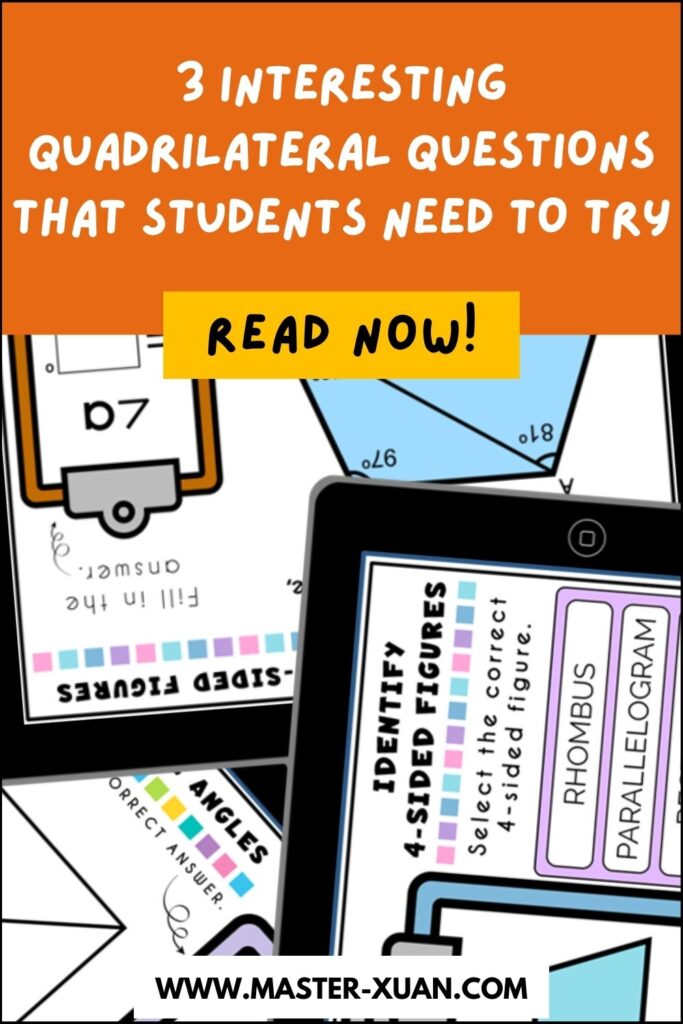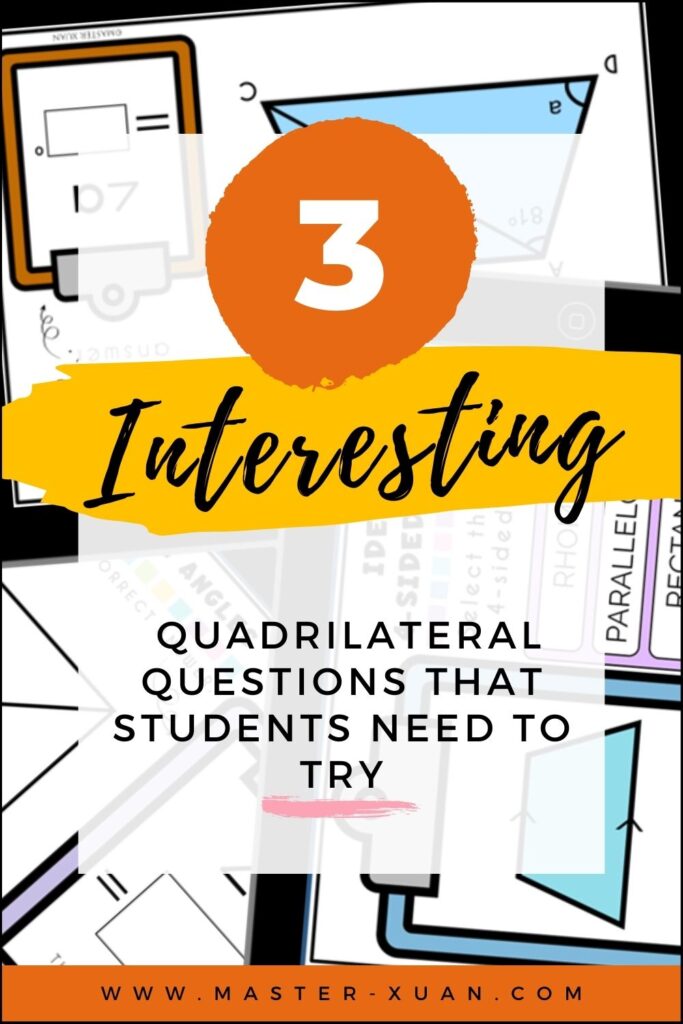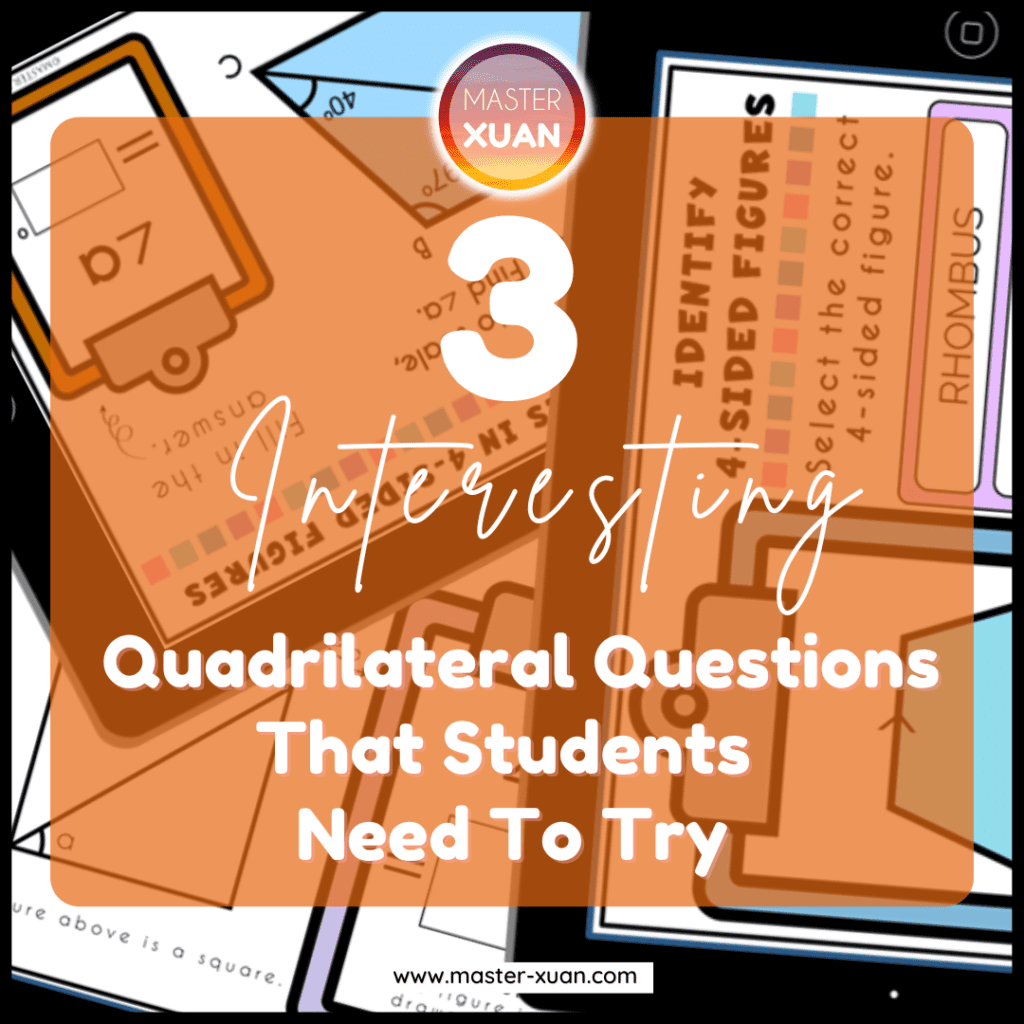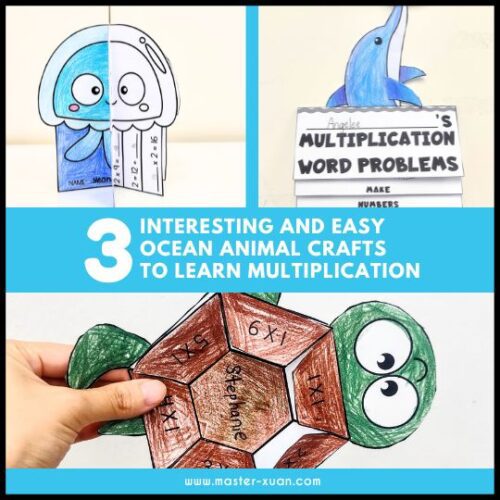Do your students, including those who are more advanced, sometimes struggle with determining missing angles in quadrilateral questions?
It’s understandable. Afterall, students need to recall the various properties of quadrilaterals, and then apply that knowledge effectively.
In this blog post, we’ll delve into three captivating quadrilateral questions that will not only test your students’ skills but also spark their interest in the captivating realm of geometry.
Afterward, I’ll share some helpful math tips for tackling angle-related questions.
Properties Of Rhombus: 2 Isosceles Triangles
In Singapore Primary Math tests, it is common to find questions stating that the diagram is a rhombus but without indicating the 2 isosceles triangles in the figure.
I believe that is to test if the student remembered the properties of rhombus.
Many questions like to make use of this property.
Example:
Temasek Primary School 2023 Prelim Paper 2 Qn 8
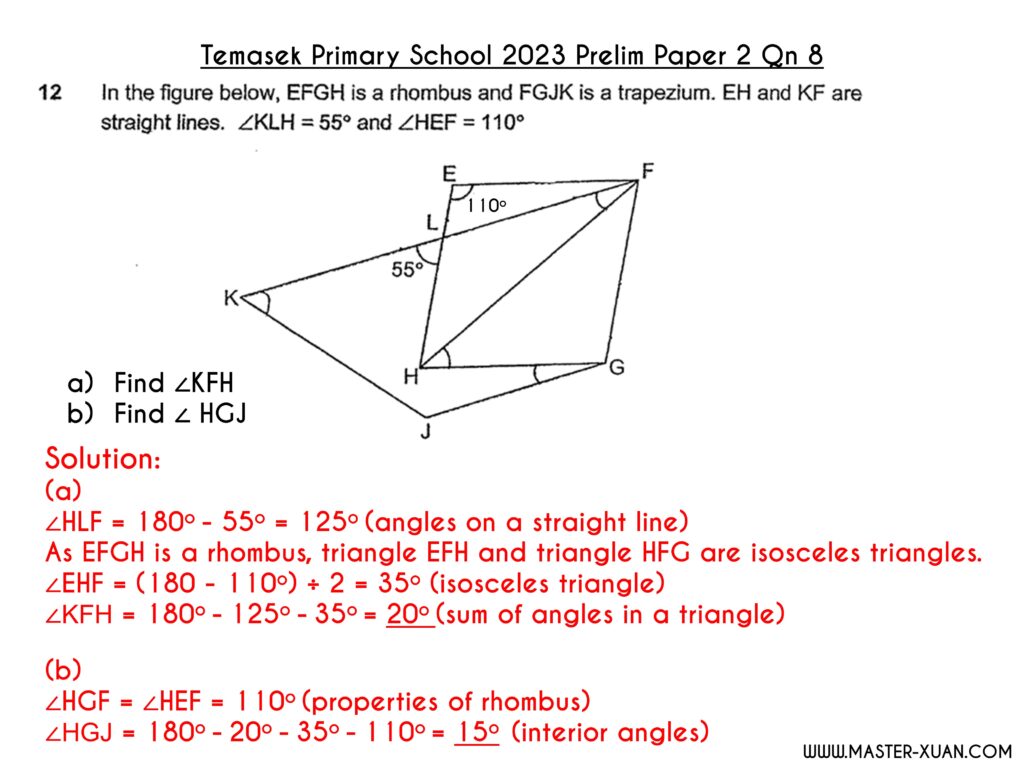
“Invisible” Isosceles Triangle
Sometimes an isosceles triangle is created.
A common way to create this isosceles triangle is when the figure includes square, circles or rhombus. One common feature of these shapes is they have equal lengths.
So if a triangle and any one of these shapes are placed together, students should keep a look out for the “invisible” isosceles triangle.
For angles questions involving square and triangles, students need to pay attention on which line is the same as the length of the square.
Students need to keep in mind that all sides of the square are the same.
Example:
Ai Tong Primary School 2023 Prelim Paper 1 Qn 22
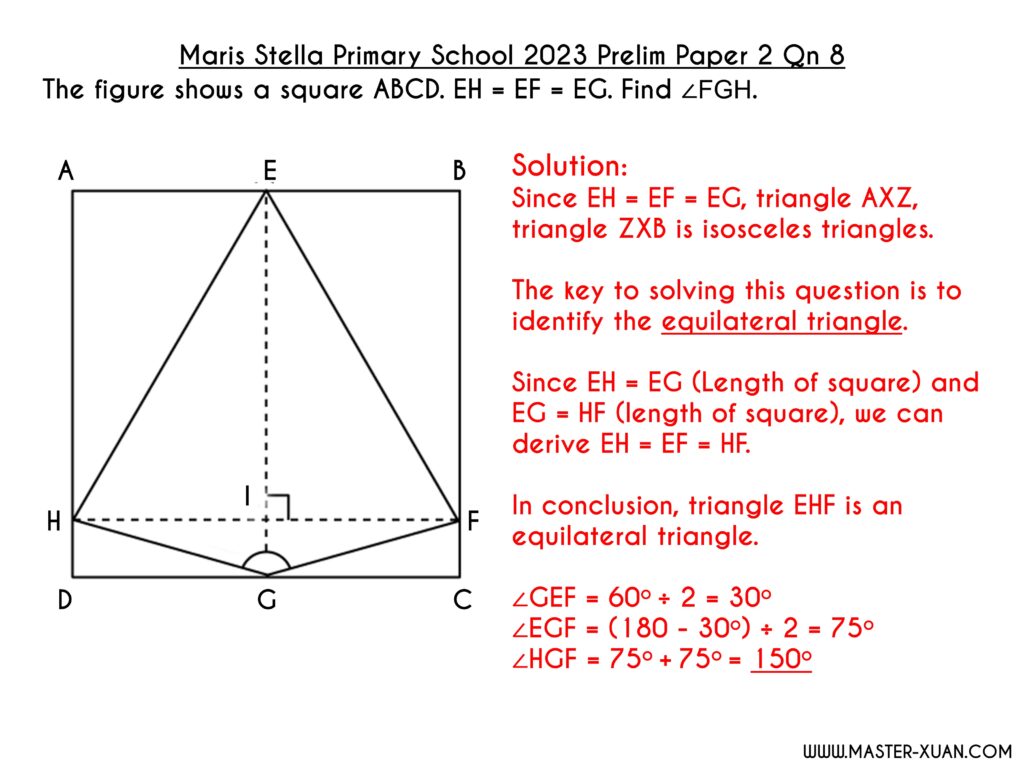
“Invisible” Equivalent Triangles
Similarly, the creation of an equivalent triangle due to its merging with squares, rhombus or circles is possible. The creation is a bit harder but can still be done.
Students need to keep a lookout for 3 same lengths.
Example:
Maris Stella Primary School 2023 Prelim Paper 2 Qn 8

Tips For Solving For Missing Angles
Find all the angles that you can find
One way to start is to find all the angles that you can find. With more clues, it will be easier to solve.
Know what angles you need to find
What other angles do you need to find to find the final angle?
Working backwards can also help make things clearer to view.
Check off all the properties that they know of
Can’t find any missing angles? Then start thinking of all the properties that you know!
Afterall, teachers wouldn’t test something that wasn’t taught or not within range.
Here are some common properties to think of: alternate angles, interior angles, angles in 4-sided figures add up to 360 degrees.
Look out for parallel lines too as they usually can create alternate angles and interior angles.
Expose to a variety of question types
Personally, I find angle questions interesting like cracking a mystery puzzle. However, that may be because I was exposed to many types of questions and know how to tackle them. It is always much more fun if you can solve it.
But for students who are just beginning to grasp these mathematical concepts, they may not have reached the same skill level and therefore might find themselves struggling.
When confronted with a question that falls outside their current skill set, this futile struggle can lead to frustration and even a distaste for the topic.
Therefore, one effective approach to enhance students’ proficiency in this area is to expose them to a variety of question types.
Then, when they encounter similar questions in the future, they will possess the knowledge on which angle or what to look out for.
This not only boosts their mathematical capabilities but also fosters a more positive attitude toward the subject.
If your students need more practice on angles, here are some money-saving bundles that they can use:
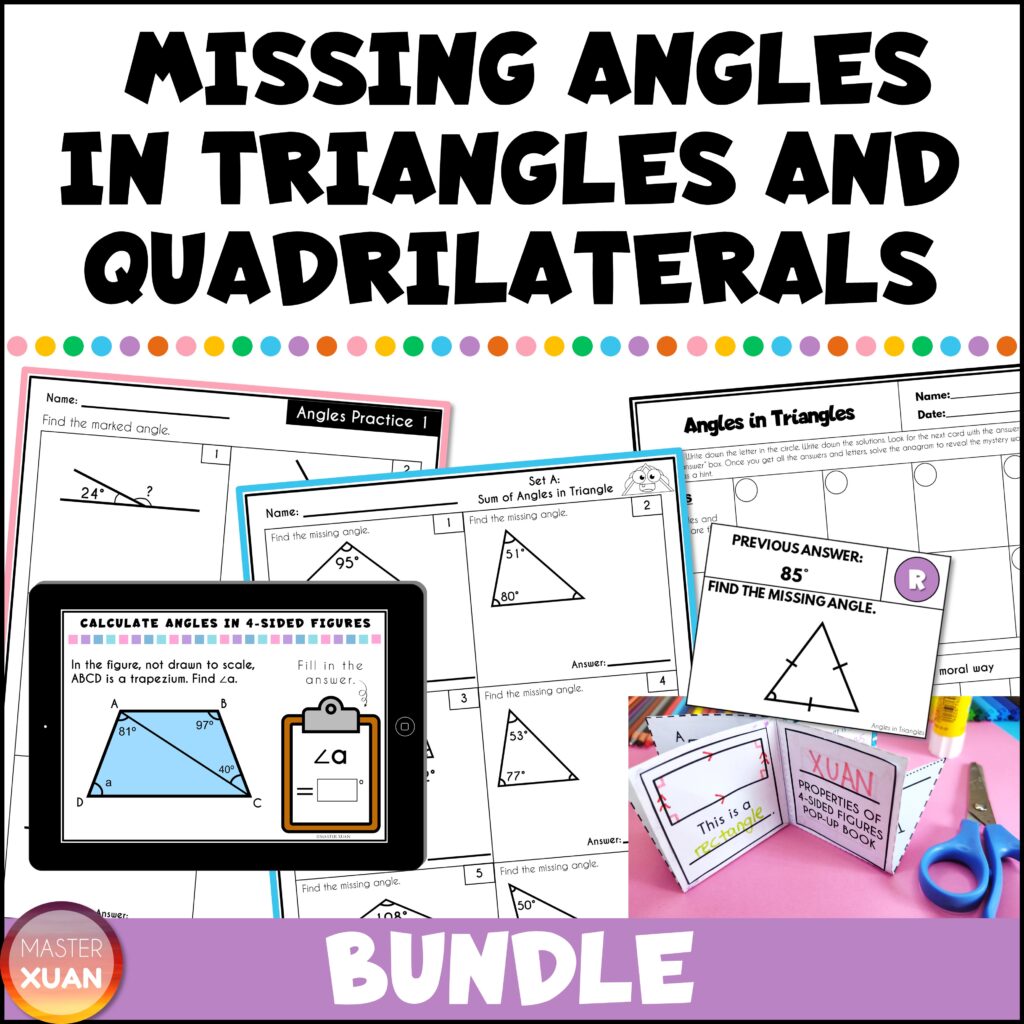
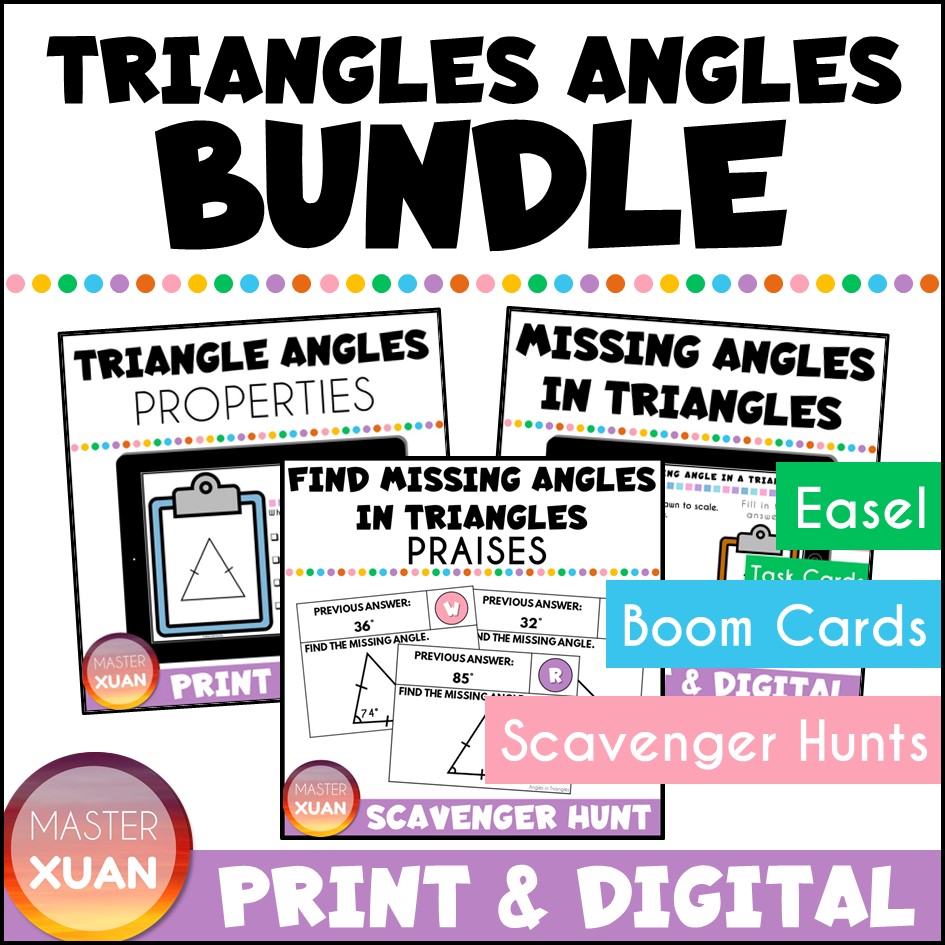
Related Read: How These Interesting Properties of Triangles Worksheets Make Lessons Easy
For angles in 4-sided figures practice:

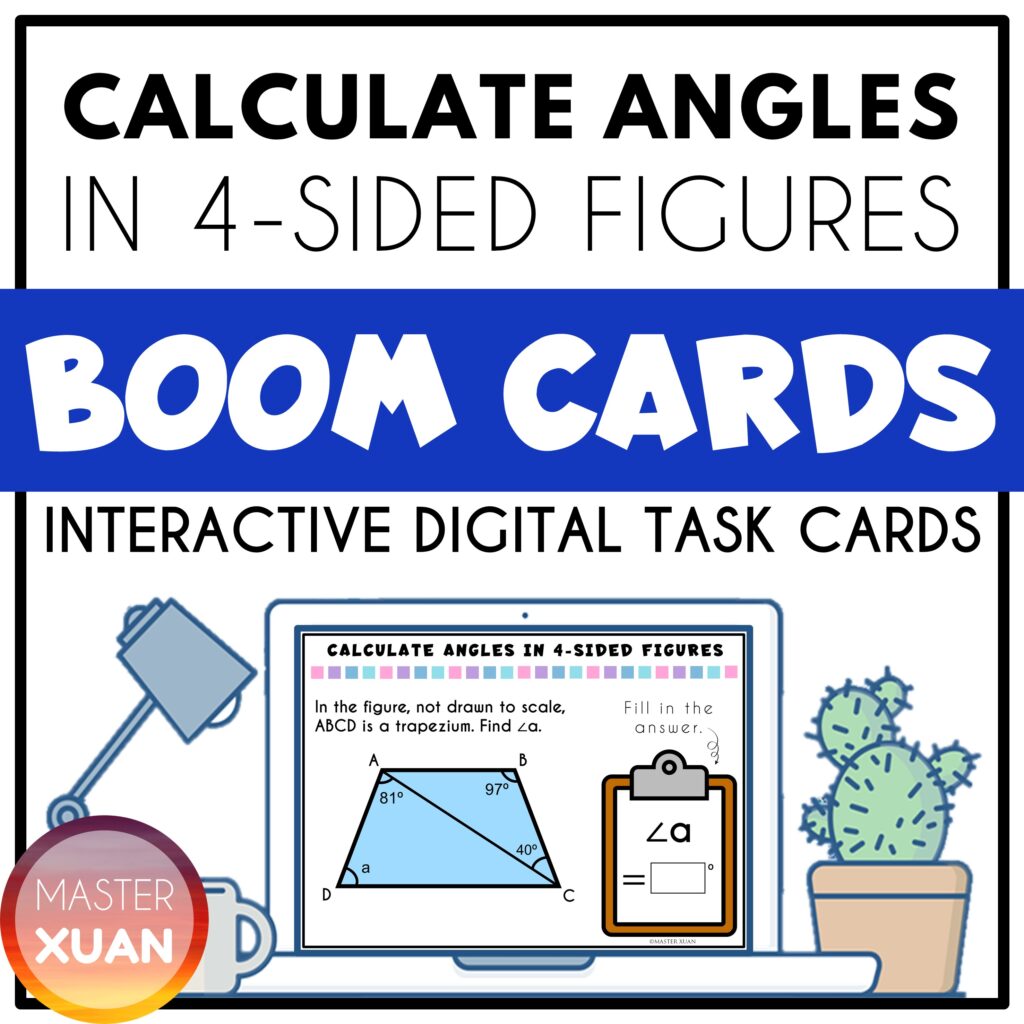

Final Thoughts
Quadrilateral questions like those mentioned above not only challenge students but also ignite their curiosity about geometry. They teach students to think critically, visualize shapes and their properties, and apply mathematical concepts.
So, the next time your students are stumped by a quadrilateral question, remind them of the various properties and questions that they had learnt!
Here are some pins that you can save to bookmark this post. Save them to your Pinterest Board now! ↓
